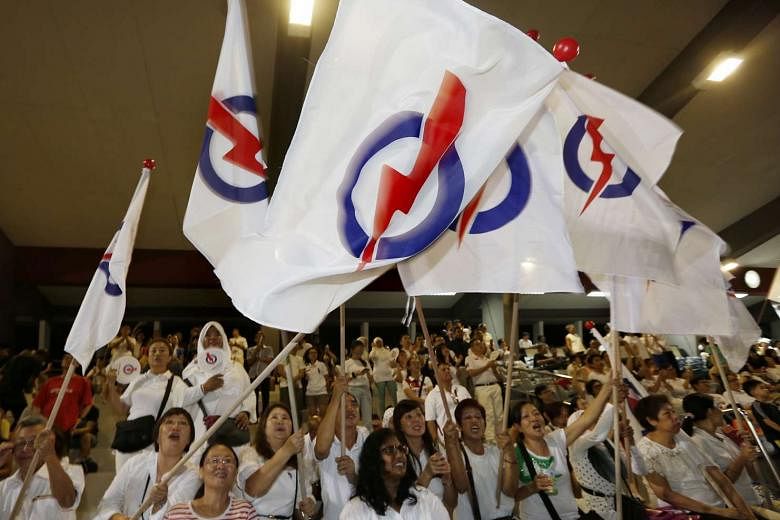The resilience shown by the People's Action Party (PAP), following its setback in the 2011 General Election, is a key reason for the nearly 10-point jump in its vote share in GE2015, observers at a post-election conference said yesterday.
Elaborating, law don and former Nominated MP Eugene Tan said it can be boiled down to what he calls the three Rs: responsiveness to feedback and ground sentiment, resourcefulness in trying new strategies to engage voters, and resoluteness in wanting to maintain one- party dominance.
These, combined with a misreading of the electorate by opposition parties, led to voters flocking to the PAP, he said at the meeting organised by the Institute of Policy Studies. Singaporeans' desire for incremental political change, as shown in the latest IPS surveys, also suggests one-party dominance will continue in the foreseeable future.
He said economic uncertainties in the world and problems in neighbouring countries led to a flight to safety as voters viewed the PAP's track record more positively.
Economist Randolph Tan, also a former Nominated MP, said: "Taking everything into consideration, voters decided that maybe the rather strong criticism on social media of the ruling party's performance could have been a bit overblown, and they decided... to compensate for it."
A grassroots leader at the conference, however, felt the opposition's decision not to take part in the Government's engagement efforts, like the Our Singapore Conversation, may have contributed to its misreading of ground sentiment.
He said organisations, such as the People's Association (PA) and National Trades Union Congress (NTUC), are effective entities through which the Government can consult widely without having to rely on the opposition for feedback.
Agreeing, Assoc Prof Eugene Tan said opposition parties need to play a more active role in public forums instead of remaining "cesspools of political discontent" if they did not want to slide into irrelevance.
He noted that there have been renewed calls, including from some in the PAP, for greater opposition engagement in the public and policymaking arenas. "The only question is whether the opposition will accept that or will they see it as being co-optation," he said.
Prof Eugene Tan also said the PAP's close links with organisations such as the PA and NTUC can work to its disadvantage. Any loss in their credibility could, by implication, affect the ruling party. "As voters become more concerned about post-material concerns such as social equity and fair play, these things could swing against the PAP," he said.
Assoc Prof Randolph Tan agreed, saying that tackling a more complicated world well will require the PAP to work with its competitors.
"Going forward, one of the more significant challenges is whether we are going to have a policy climate that allows more discerning, in-depth discussion, more back and forth, so that more interesting ideas can be taken on board," he said.


